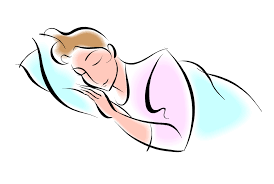 Are you getting enough sleep? Many students and young adults would answer no to this vital question. This could be for a few reasons: too much homework and studying, staying up to watch Netflix or YouTube, or simply not wanting to go to sleep. Lack of sleep, however, is not healthy and can cause many problems; both mental and physical.
Are you getting enough sleep? Many students and young adults would answer no to this vital question. This could be for a few reasons: too much homework and studying, staying up to watch Netflix or YouTube, or simply not wanting to go to sleep. Lack of sleep, however, is not healthy and can cause many problems; both mental and physical.
Sleep is vital to your physical health. A study showed that those who slept less than what is recommended were at a higher risk of obesity. This is because sleep affects your hormones, including stress hormones, and less sleep ruins the balance of these hormones, leading to obesity. Diabetes can be caused by sleep deprivation. The lack of sleep affects how much insulin the body makes and increases blood sugar levels. Sleep also affects cardiovascular health and less sleep puts people at greater risk for strokes, heart disease, and heart attacks because it increases blood pressure. Not getting enough sleep hinders the immune system from working at its full potential; it weakens it. this means that a person will have a much harder time combatting a virus or an illness.
Sleep is also a major influencer of your mental health. Not getting enough sleep will impact your brain negatively. Lack of sleep hinders mental and cognitive performance. Your concentration, problem-solving skills, and creativity are not up to par. Studies show that people who sleep less are less productive; they take longer to finish tasks, have a slower reaction time, and make more mistakes. An example of this would be drowsy drivers. They have much slower reaction times and are at a much higher risk of getting in a car accident because of this. Sleep deprivation affects memory as well. “Sleep embeds the things that we have learned and experienced over the course of the day into our short-term memory,” says Avelino Verceles, MD, assistant professor at the University of Maryland School of Medicine. When we sleep our mind is making connections that help you remember new information, lack of sleep messes with this process. Not getting enough sleep may also lead to mental disorders. Studies have shown that those who do get an adequate amount of sleep are at a higher risk of developing conditions such as depression, anxiety, anorexia, and bipolar disorder. Many studies have shown that people who lack sleep are at least 50% more likely to develop these disorders.
You can see why sleep is so important. It is the body’s way of recharging-like a smartphone. Without it, we would not be able to function properly. How much sleep should I be getting you may ask? Doctors recommend that people older than 14 should get between 8-10 hours every night. This way we will be able to function the way we were intended to.
